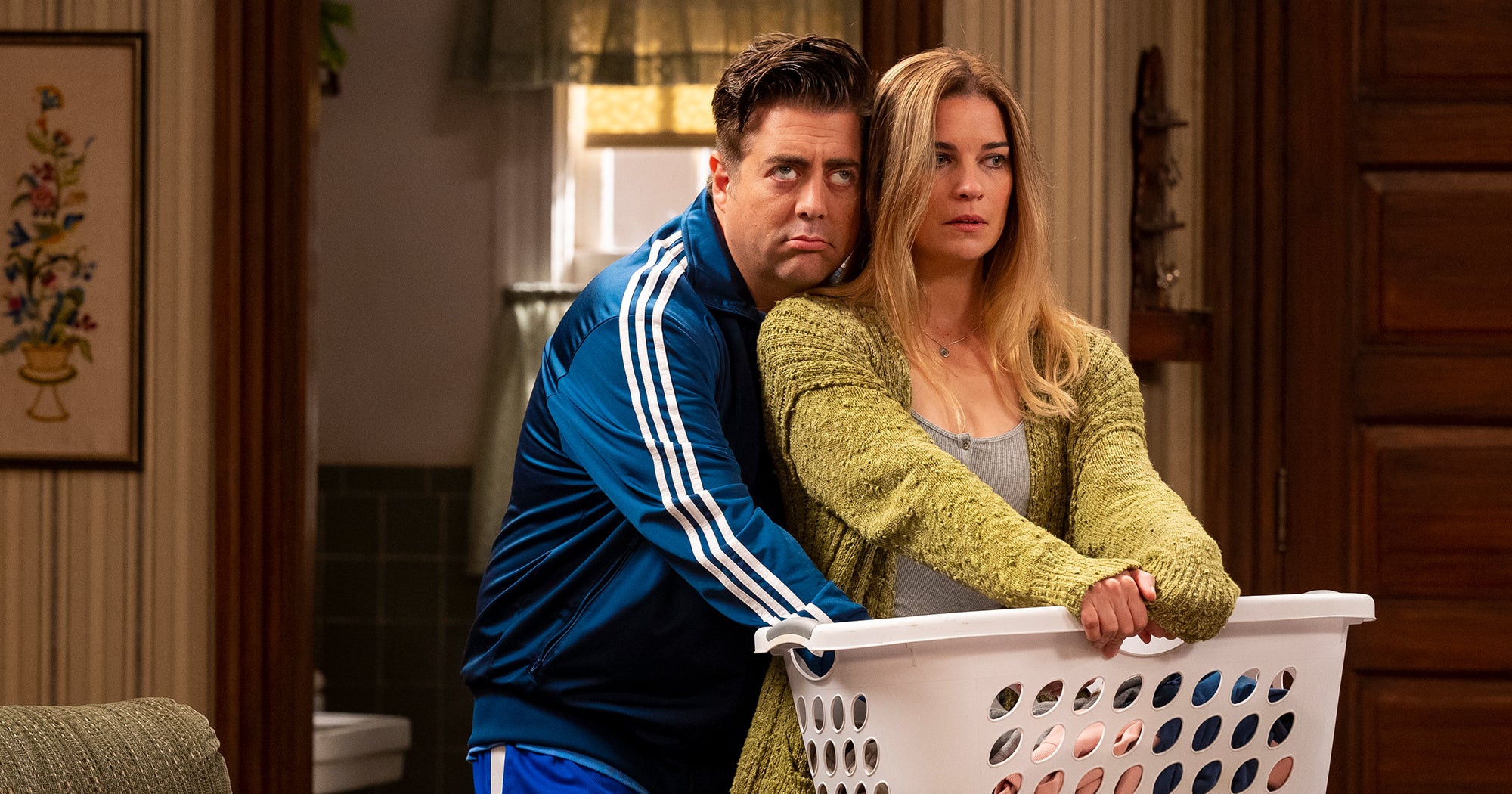‘Kevin Can F**k Himself’ and so can the lovable loser trope
Supposedly hilarious hijinks of lovable loser husbands paint a horrifying picture once the studio-lighting and laugh tracks disappear.

The latest member to the “Good For Her” club of film and television is Allison McRoberts, played effortlessly by Annie Murphy of Schitt’s Creek fame. Allison is a housewife from Worcester, Massachusetts, unfortunately married to the titular Kevin of Kevin Can F**k Himself—a fumbling, irresponsible, insensitive, selfish, demeaning, and downright abusive manbaby that does nothing more than act like every early evening sitcom husband of the last fifty years.
There are few normalized media tropes as insidious as the typical sitcom marriage. Frequently, the husband is presented as a laughable oaf whose cruelty and bigotry is excused as a quirky behavioral trait, while the smart and independent wife is treated like an emotional punching bag and a permanent buzzkill for daring to be a responsible adult. Half of Kevin Can F**k Himself resembles something straight out of King of Queens, the other half a prestige drama not unlike Homeland. The juxtaposition is an intelligently creative way to deconstruct the world of sitcom marriages, but it’s also an uncomfortably accurate look at what so many people in broken relationships have to endure.
Watching Kevin joyfully manipulate everyone around him to roaring laughter and raucous applause is one of the most infuriating television experiences imaginable. Every zinger, one-liner, or physical gag at Allison’s expense (because it’s always at Allison’s expense) is rage-inducing to the point of agony. Not because Kevin is particularly egregious in comparison to other sitcom husbands, but because he’s exactly like them and just like the men who historically behave this way in real life--he is continually celebrated for it.
A majority of Allison’s interactions with Kevin play out like lost episodes of According to Jim or Everybody Loves Raymond, complete with idiotic best friend side characters, studio-lighting, multi-camera shooting styles, and an energetic laugh track provided by an audience absolutely eating out of the palm of Kevin’s hand. And then sometimes, without warning, Allison snaps into a world of single camera elevated drama, dreary practical lighting, and the reality of Kevin’s antics are shown for what they are--abuse.
Fortunately, the side of Kevin Can F**k Himself that plays like a serious drama is also where Allison’s rage is validated and allowed to release. In the second episode, it’s revealed that Kevin has spent an exorbitant amount of money on securing a hoodie worn by New England Patriots’ coach Bill Belichick much to the dismay of Allison who was under the impression they were saving to move to a better home in a nicer area. When the package arrives, she intercepts it, and in a moment of cathartic release, smashes the shadowbox protecting the garment with the rage of a woman who just the day before witnessed her husband inadvertently break her living room table with his own negligence. When I realized I still had a hoodie that once belonged to my own Kevin, I left it in a truck stop bathroom somewhere in Oklahoma on my drive moving cross country. Allison spends the rest of the episode wearing the hoodie in secret, one of the few aspects of her life she feels she has in control.
Escaping an abusive relationship feels impossibly hard, so it makes complete sense that in Allison’s mind, the only way out of this nightmare is if Kevin died. Divorce would be exhausting, running away seems too risky, and considering Kevin called the police and reported the family vehicle stolen after Allison didn’t answer her phone a few times, it’s understandable why she’d feel like there would never truly be an escape. Watching her come home to a house full of people supporting his overreaching possessiveness of her right to privacy with howling laughter feels all too common.
The laugh track in the sitcom style moments of Kevin Can F**k Himself serves as an additional character, like a nagging intrusive thought that doesn’t leave no matter how badly Allison wishes it would. Back in 2011, NBC News did a report on laugh tracks and referenced a study where psychologists figured out audiences are more likely to laugh if they hear canned laughter after a punchline all the way back in 1974. Shows have continued with the practice as a form of artistic manipulation, not unlike how the sound design of a horror movie can be used to build tension. However, this continuation of rewarding legitimately atrocious husbands’ behavior has bled into real life, with men constantly celebrated for doing the absolute bare minimum and women are expected to happily perform disproportionately more work without appreciation. Sitcoms haven’t just encouraged finding it hilarious when garbage husbands abuse their wives--it turned it into standard practice. When I spoke out about my own abusive partner for the first time to a trusted mutual friend, their response was, “Really? No way. He’s always so positive and fun to be around!”
The latest updates, reviews and unmissable series to watch and more!
Cue the laugh track.
If there’s any justice in the world, Kevin Can F**k Himself will serve as the final nail in the coffin for a style of television where threatening to punch your wife so hard in the face she ends up on the moon is considered one of the best one-liners in history. Alice Kramden, Edith Bunker, Wilma Flintstone, Marge Simpson, Peg Bundy, Jill Taylor, Lois Griffin, Debra Barone, Carrie Heffernen, Cheryl Mabel and all others like them deserved so much better than what they were given—as does any person who has ever been made to feel suffocated so their partner could hog up all the air. We are the shattered glass of beer in Allison McRoberts’ bloody fist, and all of the Kevins of the world can truly f**k themselves.
BJ Colangelo is an award winning filmmaker and film analyst specializing in dismissed cinema and television. She writes about horror, wrestling, musicals, adult animation, sex and gender, kicking pancreatic cancer’s ass, and being a fat queer in places like Fangoria, Vulture, The Daily Dot, Autostraddle, Playboy.com, and a handful of books college students get assigned to read. She’s also the co-host of the teen girl movie podcast, This Ends at Prom, with her wife, Harmony.


